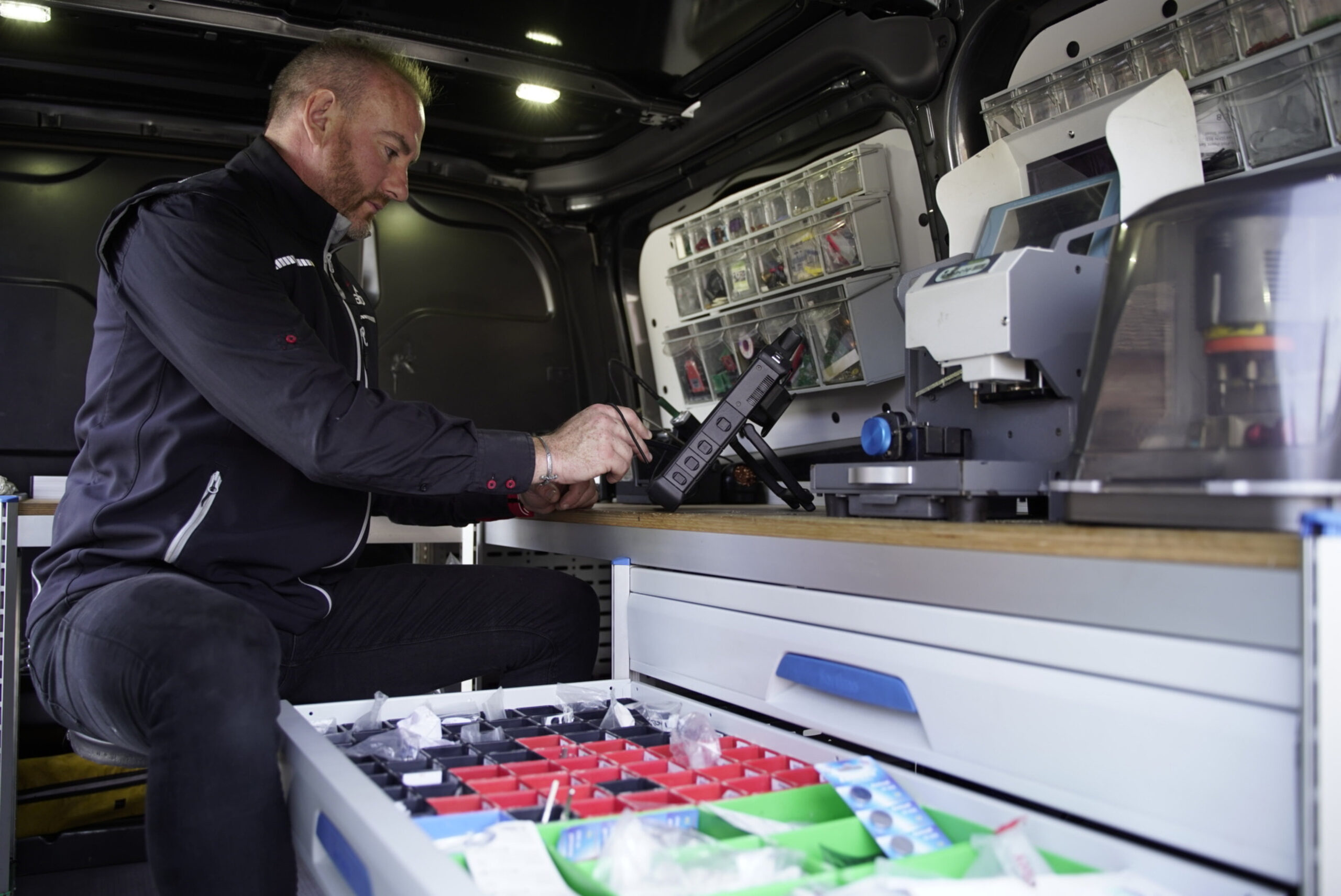
Coded Car Key Replacement
SeguirVisión de conjunto
-
Sectores Planchador
-
Trabajos publicados 0
Descripción de la compañía
10 Things That Your Family Taught You About Coded Car Key Replacement
Coded Car Key Replacement: Everything You Need to Know
In the modern-day world of automotive security, coded car keys have actually ended up being a pivotal aspect of vehicle security. Unlike conventional keys, which simply open the doors and begin the ignition, coded keys make use of advanced technology to boost security and benefit. This short article explores the numerous aspects of coded car key replacement, consisting of the types of keys, processes included, costs, and frequently asked concerns.
Comprehending Coded Car Keys
Coded car keys, frequently referred to as transponder keys, include a microchip embedded within the plastic head of the key. This chip interacts wirelessly with the vehicle’s ignition system. When the key is inserted, it sends a distinct code to the car’s computer. If the code matches, the vehicle starts; if not, the ignition system stays inactive.
Types of Coded Car Keys
Coded car keys been available in various kinds, each designed for different vehicle designs and security systems. Below are a few of the common types:
- Transponder Keys: These keys include a microchip that sends out a digital signal to the car.
- Smart Keys: Also referred to as key fobs, wise keys allow for keyless entry and ignition.
- Remote Head Keys: These combine a standard key with remote locking/unlocking functions.
- Switchblade Keys: These fold into the key fob, supplying convenience and security.
- Keyless Ignition Keys: These allow chauffeurs to start their lorries without placing a conventional key.
Comprehending these types is vital when looking for a replacement, as the requirements vary depending on the vehicle’s make and design.
The Car Key Replacement Process
The process of replacing a coded car key is more intricate than that of a standard key. Here is a step-by-step guide on how it usually works:
1. Assess the Situation
Initially, the vehicle owner must figure out if the original key is lost, damaged, or no longer working. Understanding the specific concern will assist in selecting the best solution.
2. Collect Vehicle Information
Having key information about the vehicle is important for the replacement process. This includes:
- Vehicle Identification Number (VIN)
- Make, design, and year of the car
- Any existing codes or programming info associated with the key
3. Contact a Professional
It is advisable to consult a certified locksmith or an authorized dealer for the replacement. While some auto parts shops offer fundamental key cutting services, coded key replacement typically requires specific devices and programming.
4. Programming the New Key
From there, the expert will code the brand-new key to match the vehicle’s ignition system. This might include:
- Using diagnostic tools to access the vehicle’s computer system.
- Programming the key to guarantee it interacts properly with the vehicle.
- Evaluating the new key to guarantee performance.
5. Last Checks
Before concluding the service, some specialists will carry out a series of checks, including:
- Verifying that all locks (doors, trunk, glove compartment) function with the brand-new key.
- Verifying that the key begins the vehicle perfectly.
Cost of Coded Car Key Replacement
The cost related to changing coded car keys can differ commonly based on several elements:
- Type of Key: Smart keys and key fobs tend to be more pricey than basic transponder keys.
- Programming: Professional programming and equipment costs can substantially affect the overall cost.
- Location: Prices might vary based on area, with urban areas usually charging more due to demand.
- Dealership vs. Locksmith: Authorized dealers frequently charge higher rates compared to independent locksmith professionals.
Below is a table summing up the approximated expenses for various kinds of coded keys:
| Transponder Key | ₤ 50 – ₤ 200 | Programming included |
| Smart Key | ₤ 150 – ₤ 500 | May consist of additional features |
| Remote Head Key | ₤ 100 – ₤ 300 | Performance depends on the design |
| Switchblade Key | ₤ 150 – ₤ 250 | Compact design adds cost |
| Keyless Ignition Key | ₤ 200 – ₤ 600 | High-end vehicle designs |
Frequently Asked Questions
1. How long does it take to replace a coded car key?
The time needed for a coded car key replacement can vary from 30 minutes to a couple of hours, depending on the specialist’s competence and the complexity of the vehicle’s key system.
2. Can I program a brand-new key myself?
While some cars come with a basic do-it-yourself programming option, numerous coded keys require specific equipment that is usually just offered to specialists. For that reason, consulting a locksmith professional or dealership is normally a good idea.
3. Is there a method to prevent key loss in the future?
There are several preventive procedures vehicle owners can take to reduce the threat of losing coded keys, including:
- Keeping an extra type in a safe place.
- Using key finders that can track the key location via a smart device.
- Developing a regular to check the keys before leaving the vehicle.
4. What should I do if I lose my key?
If the initial key is lost, it is recommended to:
- Avoid attempts at using other types of keys.
- Contact a locksmith professional or car dealership as soon as possible.
- Think about changing the vehicle’s locks if there are security concerns.
Coded car key replacement is a complex procedure however ultimately important for keeping the security of modern-day lorries. Comprehending the various kinds of keys and their associated costs can help owners make informed choices when confronted with the need of a replacement. As technology continues to progress, remaining informed about the most current advancements in automotive key systems remains critical for each car owner.



